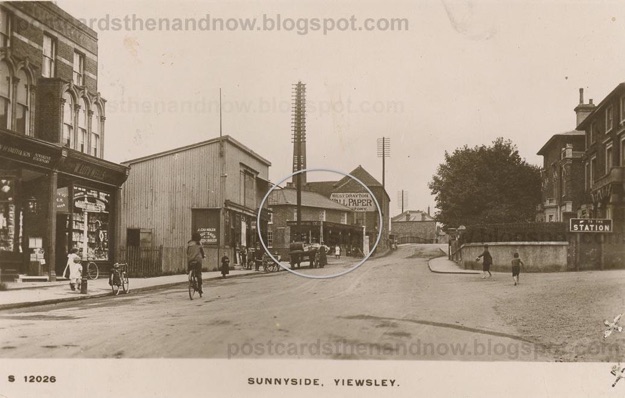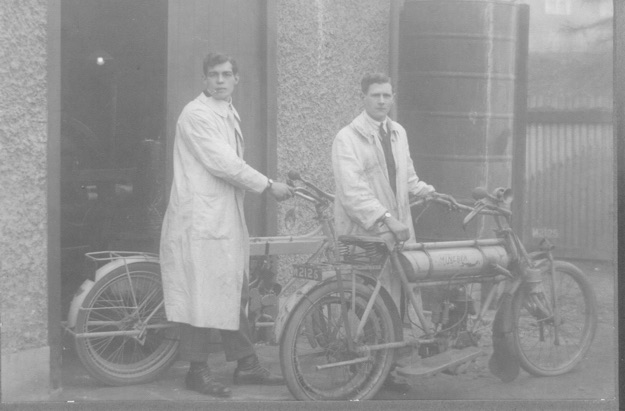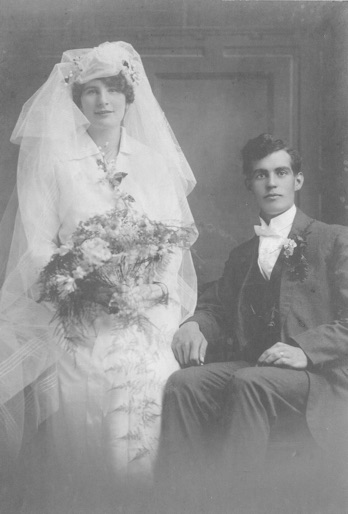Sorting through boxes of Pocock family ephemera was in every way like being posthumously introduced to my long departed relatives.... so many photos of vaguely familiar faces. At the moment, the family connections were a mystery. Boxes of old trophies, clippings, cards, letters, and bits from life like hankies and eyeglasses. Working without a map in the form of a family tree, I had to start from my mother and work out the rest as I went further into the past. The pile that was dedicated to Lucy became larger and larger and was then divided, then once again. The grandmother who passed before I was born appeared to have had quite an extraordinary life.
It was during the finer sorting that I began to put her life and accomplishments into focus and order. Within the sorting for the collection that I sent to the River and Rowing Museum in Henley on Thames, the existence of numerous love letters was discovered. With the press surrounding the sculling races Lucy participated in, opportunists would send cards and notes with their kindest regards with hopes of a date or even quick nuptials. I am sure these spontaneous enamored missives must have made great reading around the family dinner table.
Far and away the greatest pile of papers belonged to one persistent fellow, a chap named “Alex”. Envelope after envelope produced pages of his inner thoughts and feelings. I collected all his letters, put them in chronological order, and then dove in. The letters span four years, from 1910 to 1914, with more than 250 pages. In that time period Lucy won the first Woman’s Rowing Championship (1912), moved to Seattle (1912-13), and started coaching woman's crew and swim team at the University of Washington (1913). I was very excited to read what Alex had to say about Lucy’s successes. Remarkably, nary a single sporting accomplishment is acknowledged or congratulated by Alex in his letters.
The letters start out with Alex assessing his chances with Lucy and querying if she’s serious about current beau Edmond “Dabby” Luff. Then there’s a tasseled dance card from the “Cinderella Ball” at Windsor where Alex’s name is penciled in for every other dance. Later, when Dabby leaves Eton to find his fortune in Canada, Alex makes his move on Lucy.
Through 1911 Alex is living in Ascot and seems to enjoy going to the races, but bemoans his betting losses. Lucy and family are living at the Brocas Boat House in Eton. By 1912 we are well underway with letters begun: My darling sweetheart..... and ending with a forest of xxx & ooo’s. Lucy’s departure from London to join her brothers in Vancouver B.C. brings on quite a passionate fever in poor Alex. Alex is now determined to reunite with Lucy and leaves his leisurely activities in Ascot to move to West Drayton and run a movie house projector. He is also studying to become an electrical engineer but his studies are proving hard going. When Alex’s entreaties for Lucy to return go unfulfilled, Alex devises a plan to hire onto an ocean liner heading to America with the intent of jumping off at the first sight of Lady Liberty.
By December of 1912 Alex declares his intentions if only they can be reunited. Awkwardly, Dabby Luff is still carrying the torch for Lucy and writes her an emotional (for him) letter explaining that all this work he’s been killing himself with was for their future together... and how about reconsidering him? Poor Dabby’s letters are quite dry and devoid of personality. They do not compare nor contrast well to Alex’s florid way with words
Now 1913 has rolled around and Alex has had no luck with his idea of a steamship to America. Pursuits of electrical engineering aren’t progressing either. So Alex and his buddy Frank decide to open a motorcycle shop as these contraptions are all the rage. But tragedy strikes when Alex’s father is injured at work and all Alex’s savings are used to pay the medical expenses. Alex must assume the role of sole breadwinner for his family. His chance to follow Lucy to the New World is dashed. He tries again to persuade Lucy to return to him, but Lucy has her coaching job at the University of Washington and things are looking up for her.
By the summer of 1913 Lucy had offered to pay for Alex to come to Seattle with the understanding that he’d quickly find a job and repay her. Alex leapt at the offer and started making his plans. When Lucy’s brothers Dick and George found this out they were appalled. They felt that Alex’s having accepted a woman’s money showed a fatal lack character. They went to work on Lucy and convinced her to break it off with Alex. Through the Fall poor Alex is befuddled by the coolness in Lucy and her lack of letters. He then comes to the realization that the relationship is over. His last letter to Lucy, filleting his heart open to her, was dated November 17th, 1913.
Alex, in a terrible state of despair soon hopped an emigration ship out of London. An old bark that took seven weeks to sail to Timaru New Zealand. The entire voyage Alex spent looking at Lucy’s picture. Alex had signed a three year indentureship to run a movie projector there. In early 1914 Lucy sent him a letter that was waiting for him when he got off the ship. This consoled him greatly and they had a rapprochement as friends. With only a few letters exchanged, the correspondence ends in November of 1914.
But the question remained... who IS Alex? In all these letters and envelops he never uses his last name -- just “Alex”. Having now lived through four years of his life, we are left to wonder what has become of him.
Hard as it was, the question had to be abandoned as further clues to his identity could not be found even with multiple passes through the letters. Onward to sorting greeting cards and more ephemera. A month later, deliberating over which cards were worth keeping, an oddly sized Christmas card stood out. It was sporting a 1914 postmark from Timaru New Zealand! Inside it was engraved: From Alex J. Larnder. We’ve got our man!
Racing to the computer to put Google to work, there was immediate success. It turned out that Alex remained in Timaru New Zealand, married and had a son. This son was a pioneer in the Dermatology field who was very famous. It was thanks to this son’s Wikipedia page that we could zero in on Alex. So of course an introductory phone call to the family was in order. It was 10:40 at night here in Poulsbo but daylight in New Zealand. It took some tries, and finally the call got through to the widow of the famous son. Both father and son had passed but Alex has three granddaughters.
The family had always wondered why Alex had come to Timaru.... so I informed them that “it was a woman breaking his heart, of course!” He had never mentioned Lucy nor was her picture amongst the family’s possessions. I felt like the Larnder family should be united with the original letters as they are a diary of their Patriarchs formative years. I bundled up the letters, gifts Alex had given Lucy, and photos and sent them off to Timaru. We’ve had a lovely correspondence as two families that have a 100 year old connection.
The garage where Alex and Frank started their motorcycle shop:

Alex (left) and Frank with their motorcycles:

Alex (on left) and a friend:


Alex and his wife Sarah “May” McKeever on their wedding day Feb. 6, 1917 in Timaru:
Postscript: In 1913 & 1914 Lucy was the cook for the University of Washington mens crew table. She would row across Lake Union on regular trips to market for fresh produce. The owner of the contracting company digging the Montlake Cut and Ship Canal would look up from his job site and see this elegant woman rowing in the still of the morning and was intrigued. James. B. Stillwell was a widower with three children at home. Lucy fell in love with Jim, even more so his children, and they were married October 10, 1917. Jim and Lucy went on to have two daughters of their own, Betty and Grace.



